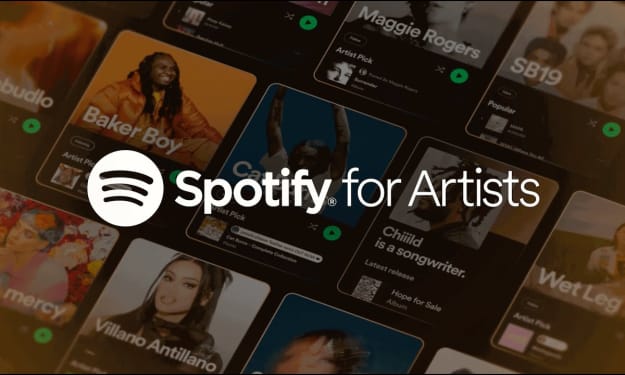The Ultimate Guide to Monetizing Your Music Career
The music industry has undergone a significant transformation in recent years, providing musicians with an array of opportunities to monetize their craft.

The music industry has undergone a significant transformation in recent years, providing musicians with an array of opportunities to monetize their craft. Whether you're an independent artist or part of a band, there are numerous ways to earn a living from your music. This ultimate guide will explore various methods to help you monetize your music career and achieve financial success.
With the advent of digital platforms and innovative technologies, musicians can now access diverse revenue streams. This comprehensive guide aims to provide you with actionable insights and practical tips to navigate the modern music landscape. From traditional methods to cutting-edge strategies, you'll discover how to effectively turn your passion for music into a sustainable income.
1. Streaming Services
Streaming platforms like Spotify, Apple Music, and Tidal are essential for any musician. By getting your music on these platforms, you can earn royalties every time your music is played. Focus on promoting your music to gain more streams.
To maximize your earnings from streaming services, create engaging content that encourages fans to share your music. Utilize social media platforms to build a strong online presence and connect with your audience. Collaborate with influencers and other artists to reach new listeners. Additionally, consider offering exclusive releases or bonus tracks to incentivize digital purchases. Regularly analyze your streaming data to understand your audience's preferences and tailor your marketing strategies accordingly.
2. Crowdfunding Platforms
Sites like Patreon and Kickstarter allow musicians to receive direct support from their fans. Offer exclusive content, early releases, and personalized experiences to encourage fan contributions. Crowdfunding can provide a stable income stream and enable you to fund new projects, such as recording an album or going on tour.
To launch a successful crowdfunding campaign, set clear goals and communicate your vision effectively. Create compelling rewards that entice fans to contribute, such as early access to new music, personalized merchandise, and virtual meet-and-greets. Regularly update your supporters on the progress of your projects and show appreciation for their contributions. Transparency and consistent engagement are key to maintaining a strong relationship with your backers.
3. Merchandise Sales
Selling merchandise such as T-shirts, hats, posters, and vinyl records can be a significant revenue stream. Use platforms like Merchbar or Bandcamp to sell your merchandise online. Merchandise not only generates revenue but also serves as a marketing tool, helping to increase your visibility and connect with fans.
Invest in high-quality designs that resonate with your audience. Offer limited edition items or bundles to create a sense of exclusivity and urgency. Regularly update your merchandise offerings to keep them fresh and exciting. Use your social media platforms and email newsletters to promote your merchandise and drive sales. Additionally, consider partnering with local artists or designers to create unique and appealing products.
4. Music Licensing and Sync Deals
Licensing your music for use in TV shows, films, and commercials can be very profitable. Sync deals not only provide financial benefits but also increase your music's exposure. This exposure can lead to increased streams, downloads, and new opportunities within the industry.
To pursue sync deals, network with music supervisors, join music libraries, and attend industry events. Ensure your music is properly registered and available for licensing. Tailor some of your compositions to fit common sync needs, such as instrumental versions or specific genres that are frequently sought after by media producers. Leverage your existing fanbase to create buzz around your music and attract the attention of sync professionals.
5. Virtual Concerts and Live Streaming
Performing live online has become increasingly popular. Platforms like Twitch, YouTube Live, and Facebook Live allow you to reach a global audience. Monetize these performances through donations, ad revenue, and ticket sales for exclusive events. Live streaming allows you to provide a personal and interactive experience for your fans.
Schedule regular live streams and promote them across your social media channels. Create engaging content by taking song requests, answering questions, and sharing stories behind your songs. Collaborate with other musicians or influencers to reach new audiences and provide varied content. Utilize the built-in monetization features of these platforms to maximize your earnings. After each performance, analyze the feedback and engagement to improve future live streams.
6. Offering Music Lessons
Teaching music, either in-person or online, can be a rewarding way to earn money. Platforms like Zoom and Skype make it easy to connect with students from around the world. Teaching not only provides a steady income but also enhances your own skills and knowledge.
Create a structured curriculum tailored to different skill levels. Offer one-on-one lessons, group classes, or even pre-recorded courses. Use testimonials from satisfied students to attract new learners. Promote your teaching services through your website, social media, and local music communities. Develop a strong reputation as an educator by continuously improving your teaching methods based on feedback from students.
7. Session Work and Collaborations
Offer your services as a session musician or collaborate with other artists. This can include playing instruments, singing, or producing tracks for other musicians. Session work allows you to contribute to diverse projects and gain valuable industry experience.
Join online platforms like SoundBetter, AirGigs, and Fiverr to offer your session services. Build a portfolio showcasing your versatility and expertise. Communicate clearly with clients to understand their needs and deliver high-quality recordings. Reliable and professional service can lead to repeat business and referrals. Network within the industry to increase your visibility and attract more session work opportunities.
8. Writing and Producing for Others
If you have a talent for songwriting or producing, consider offering these services to other artists. This can involve everything from writing lyrics to full track production. Working behind the scenes allows you to contribute to diverse projects and gain valuable industry experience.
Network with other musicians, producers, and industry professionals to find opportunities. Join songwriting groups, attend workshops, and participate in co-writing sessions. Protect your rights by properly registering your compositions and negotiating fair agreements for your contributions. Stay updated with industry trends and continuously hone your craft to remain competitive.
9. Creating Online Courses
Develop and sell online courses on platforms like Udemy, Teachable, and Skillshare. Share your expertise on various music-related topics, from songwriting to music production. Online courses allow you to reach a global audience and generate passive income.
Create comprehensive and engaging course content with video tutorials, written materials, and practical exercises. Offer both beginner and advanced courses to cater to different skill levels. Promote your courses through your website, social media, and email newsletters. Gather feedback from students to improve your offerings and build a strong reputation as an educator.
10. Affiliate Marketing
Promote music-related products on your blog, YouTube channel, or social media, and earn a commission on sales. This can include instruments, recording equipment, or music software. Affiliate marketing allows you to earn money by recommending products you genuinely believe in and use.
Join affiliate programs from reputable companies in the music industry. Create content that showcases the benefits and features of the products you promote, such as reviews, tutorials, and unboxing videos. Use affiliate links and track your performance to optimize your strategy. Transparency and honesty in your recommendations will build trust with your audience.
11. Leveraging Social Media
Build a strong social media presence and monetize through sponsored posts, brand partnerships, and ad revenue. Platforms like TikTok, Instagram, and YouTube offer opportunities for musicians to earn money by promoting products or services. Social media allows you to reach a large and diverse audience, making it an effective tool for growing your music career.
To monetize your social media presence, focus on creating high-quality and engaging content that resonates with your followers. Consistently post updates, behind-the-scenes content, and snippets of your music to keep your audience interested. Collaborate with brands and companies that align with your image and values. Use features like Instagram Stories and YouTube Shorts to increase your visibility and engagement. Analyze your social media metrics to understand what content performs best and adjust your strategies accordingly.
12. Developing a Personal Brand
A strong personal brand can set you apart in the competitive music industry. Your brand is more than just your music; it encompasses your image, message, and the values you represent. Developing a cohesive and authentic brand can attract fans, media attention, and business opportunities.
Start by defining your unique selling points and what makes you different from other musicians. Consistently communicate your brand through your visuals, social media posts, and interactions with fans. Create a professional website that reflects your brand and serves as a hub for your music, merchandise, and updates. Engage with your audience genuinely and build a loyal fanbase that supports your career.
Conclusion:
Monetizing your music career requires creativity, persistence, and a willingness to explore various revenue streams. By leveraging the opportunities provided by digital platforms and staying engaged with your audience, you can build a sustainable and successful music career. From streaming royalties to virtual concerts, the possibilities are endless.
Remember, the key to success in the music industry is persistence, adaptability, and continuous learning. Embrace the digital age, stay connected with your audience, and explore new opportunities to grow your career. With the right strategies and dedication, you can turn your passion for music into a profitable and fulfilling profession.
About the Creator
Enjoyed the story? Support the Creator.
Subscribe for free to receive all their stories in your feed. You could also pledge your support or give them a one-off tip, letting them know you appreciate their work.






Comments
There are no comments for this story
Be the first to respond and start the conversation.